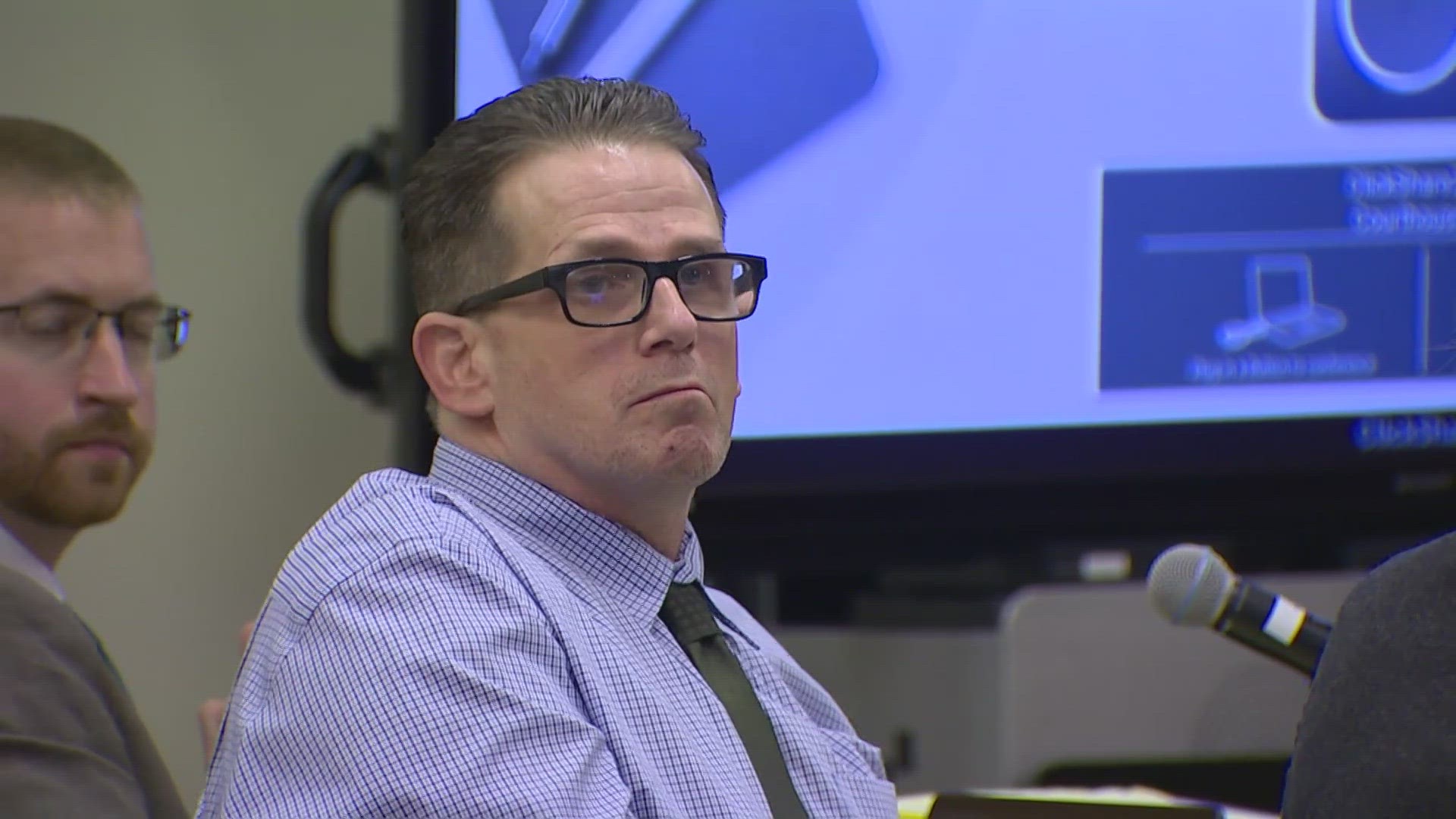EVERETT, Wash. — Veteran police officers were brought to the brink of tears on Tuesday as they testified in the killing of one of their own.
The trial of Richard Rotter, the man accused of killing Everett police officer Dan Rocha last March moved into its second emotional day.
Witnesses to the brutal killing, as well as police officers who responded to the scene, made it clear they are still impacted by the crime one year later.
Starbucks worker Madalynn Cannon had just taken Rocha’s order.
He was a regular at the north Everett store when gunfire erupted in the parking lot.
Richard Rotter had just killed Dan Rocha.
"(The defendant) got in his car, put it in reverse and he ran over officer Rocha as he left the scene," Cannon testified.
Just eight minutes earlier Rocha saw Rotter moving guns between two cars.
He turned on his body camera and went to investigate.
Rotter, a convicted felon was not allowed to legally possess a firearm.
Prosecutors believe Rotter realized this and didn’t want to go back to prison, so during a struggle he shot Rocha in the head three times at point-blank range.
Everett Police Sgt. Dave Sinex tried in vain to keep his colleague alive.
"I thought if I could keep his heart beating so his family could see him one more time by me doing CPR, that’s kind of where my mind was," Sinex testified.
Chief Dan Templeman, who hired Rocha, became emotional, as well, when he described arriving at the scene.
"I saw officer Rocha, who I immediately recognized," Templeman said, taking a long pause to collect himself. "He was laying on his back. His external vest carrier was unzipped, and I saw a pooling of blood around his head area."
Visibly shaken and struggling to keep his composure, Sgt. Steve Harney could barely speak from the witness stand.
His voice was often reduced to a whisper as he described responding to the shooting.
Harney was first on the scene.
There was nothing he could do.
When asked by one of the prosecutors if he checked for a pulse, Harney could barely say, "Yes."
When asked if he found one Harney only muttered, "No."
Rotter is charged with premeditated first-degree murder.
Defense attorneys offered no cross-examination of any of the prosecution's witnesses.
They concede Rotter pulled the trigger, but they argue he suffers from multiple mental health and drug issues that impact his ability to think and reason, therefore, making him unable to premeditate the killing.
If convicted, Rotter faces life in prison without the possibility of parole.

